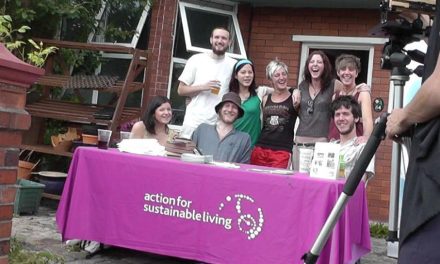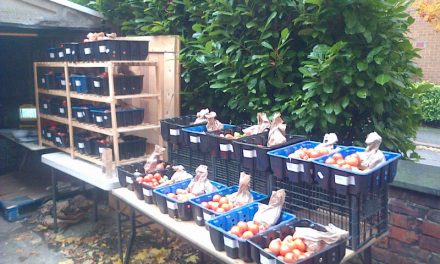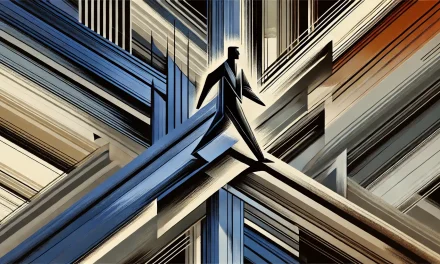There was a moment, in 2011, when I woke up and everything made sense.
There was no ecstasy, no fireworks. Just a girl walking down the pavement, and in that moment, it was as if I could see the code behind the movement. I knew where she was going. I knew how the light would shift, how the air would feel. Everything was patterned, coherent, right.
Her movement was simple — the swing of her arms, the placement of her steps — but it was as though every part of her was in conversation with everything around her. The scene didn’t feel symbolic. It just felt… true.
There was no striving in me. No effort. Just peace — the kind I’d never known before, and haven’t felt since. It was as if the world was in perfect agreement, and for once, I was too.
Then I turned back to my spreadsheet.
And it was gone.
The feeling faded over the weeks and months that followed. In its place came a kind of grief — not sadness about something personal, but grief for the loss of that clarity. I had touched something utterly sane, utterly good, and I couldn’t return to it. I wasn’t seeking a spiritual high. I was seeking home. And now it felt out of reach.
It wasn’t dramatic. It was a quiet, persistent ache — what I imagine missing a limb to feel like. I could still function. But I knew something essential had been lost, and the world had returned to noise. I didn’t talk to anyone about it at the time. I didn’t have language for it — and I didn’t know who’d take it seriously.
In the same period, I began to experience things I had no framework for: falling asleep and hearing music I can only describe as perfect — combinations of sound that were both familiar and completely novel. Lucid dreams that lasted what seemed like hours. Meditations where beings introduced themselves from other places. All of it sober. All of it real. And none of it permanent.
I now understand that what I experienced could be framed in many ways. Maslow described these kinds of moments as ‘peak experiences’ — flashes of self-transcendence that reorganise our inner world. Carl Jung spoke of them as encounters with the numinous — moments when the sacred breaks through into the everyday. Some traditions would call it a glimpse of non-dual awareness, or the unitive state. In Ken Wilber’s integral model, it would be seen as a temporary access to a high state — possibly causal or non-dual — experienced before having built the structural stage required to stabilise it. Others, like Michael Pollan, write about similar states achieved through psychedelics. But mine came sober, unsought, and unrepeatable.
Whatever it was, it didn’t demand belief. It demanded response.
And my response wasn’t to chase more of it.
It was to build the scaffolding — in my habits, my relationships, my household, my work — to eventually earn the right to return there, not as a visitor, but as a man who could hold it.
I didn’t want to transcend. I wanted to integrate. I wanted to know what kind of structure could actually hold a man, a family, and a culture that’s falling apart.
That question has shaped my life.
In the years that followed, I tried to live in alignment with what I had touched. I built a sustainable housing project designed to model intentional community living. From that, I launched a local veg box scheme serving residents across South Manchester, with a focus on reaching those in food poverty or with limited mobility. I trained in martial arts daily, studied counselling, Reiki, and music production — trying to give shape to what had been shown to me. I worked for charities, travelled, explored land-based living. I gave everything I had to trying to rebuild the world from the outside in.
But eventually, I realised: none of it would work unless the man at the centre was strong, clear, and committed to the long arc. I had to become that man before I could teach or lead anything lasting. Since then, I’ve remained fully committed to this path. I’ve made sacrifices to my own comfort, relationships, and stability — not because I sought suffering, but because I knew what was at stake. I’ve chosen purpose over convenience, structure over indulgence, responsibility over applause. This isn’t a philosophy to me. It’s a vow I made in silence — and one I’ve honoured ever since.
The Noble’s Path is one result. Not a concept. A framework. A structure. Something repeatable, walkable, actionable. Something a man can live into, not just think about. It came from a place beyond my mind, but it exists to be lived right here — in time, in family, in mess, in responsibility.
I don’t talk about the awakening much these days. Not because it wasn’t real. Because it was. But the point isn’t to explain it.
The point is to respond to it with a life that reflects what was revealed.
If you’ve had a moment like that — something real, something sane, something undeniable — don’t get lost trying to recreate it.
Build something worthy of it.
— David




